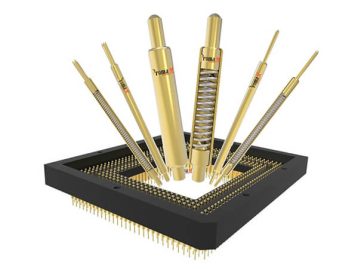Have you ever wondered what makes certain copper alloys so exceptional in terms of their strength, conductivity, and versatility?
One such alloy that piques my curiosity is beryllium copper.
With its unique combination of copper and a small percentage of beryllium, this alloy exhibits extraordinary properties that set it apart from traditional copper and other alloys.
Beryllium copper boasts remarkable strength, hardness, and wear resistance, making it a highly sought-after material in industries ranging from aerospace to electronics.
Moreover, its outstanding thermal and electrical conductivity makes it invaluable in various applications.
Join us as we delve into the fascinating world of beryllium copper and explore its composition, properties, manufacturing process, applications, and more.
Definition of Beryllium Copper
Beryllium copper is a copper alloy that contains a small percentage of beryllium as the primary alloying element.
This unique combination results in a material with exceptional mechanical, thermal, and electrical properties.
Beryllium copper is known for its high strength, hardness, and wear resistance, making it suitable for a wide range of applications.
It also exhibits excellent thermal and electrical conductivity, making it valuable in industries such as aerospace, electronics, automotive, and oil and gas.
Understanding the properties and applications of beryllium copper is crucial in appreciating its significance in various industrial sectors.
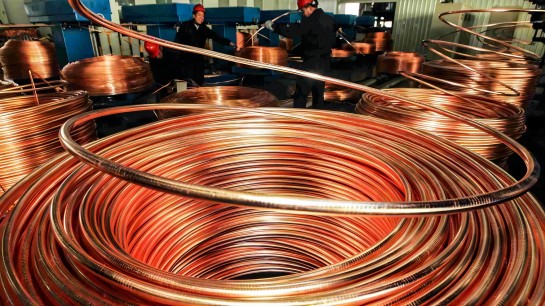
Importance and Applications
The importance of beryllium copper lies in its exceptional properties and its ability to fulfill critical requirements across various industries.
Here are some key reasons why beryllium copper holds significant importance:
-
Strength and Hardness:
Beryllium copper exhibits remarkable strength and hardness, surpassing that of traditional copper alloys.
This makes it an ideal choice for applications that demand high mechanical performance, such as springs, connectors, and electrical contacts.
Its strength and hardness enable it to withstand heavy loads, resist deformation, and maintain dimensional stability over time.
-
Electrical Conductivity:
Beryllium copper possesses excellent electrical conductivity, rivaling pure copper.
This property makes it highly desirable in the electrical and electronics industry.
It is widely used in connectors, terminals, switches, and other components that require efficient and reliable electrical conductivity.
Beryllium copper’s conductivity ensures minimal energy loss and enables the smooth flow of electricity, critical in high-performance applications.
-
Thermal Conductivity:
Beryllium copper exhibits superior thermal conductivity, allowing it to efficiently transfer heat.
This property is advantageous in applications where heat dissipation is essential, such as heat sinks, heat exchangers, and electrical connectors.
Beryllium copper’s high thermal conductivity helps prevent overheating, enhances cooling efficiency, and improves overall system performance and reliability.
-
Wear and Corrosion Resistance:
Another significant aspect of beryllium copper is its exceptional wear and corrosion resistance.
It resists wear and frictional forces, making it suitable for components subjected to repetitive motion or mechanical stress, such as bearings, springs, and gears.
Additionally, beryllium copper’s resistance to corrosion enables its use in environments exposed to moisture, chemicals, or harsh conditions, where corrosion resistance is vital for longevity and reliability.
-
Non-Magnetic and Non-Sparking Properties:
Beryllium copper possesses non-magnetic and non-sparking characteristics, making it invaluable in industries with specific safety requirements.
These properties are crucial in applications where magnetic interference must be avoided or in potentially explosive environments.
Beryllium copper’s non-magnetic and non-sparking nature enhances safety and reduces the risk of accidents or damage.
-
Lightweight and Cost-Effective:
Despite its exceptional properties, beryllium copper remains relatively lightweight compared to other high-strength materials, offering an advantage in weight-sensitive applications.
Furthermore, although beryllium copper may have a higher initial cost compared to some alloys, its extended lifespan, improved performance, and reduced maintenance requirements often result in long-term cost savings for industries that rely on its unique capabilities.
Overall, beryllium copper’s importance stems from its ability to fulfill critical requirements in industries such as aerospace, defense, electrical and electronics, automotive, and oil and gas.
Its exceptional strength, electrical and thermal conductivity, wear and corrosion resistance, non-magnetic and non-sparking properties, lightweight nature, and cost-effectiveness make it an invaluable material for a wide range of applications, contributing to enhanced performance, efficiency, and safety.
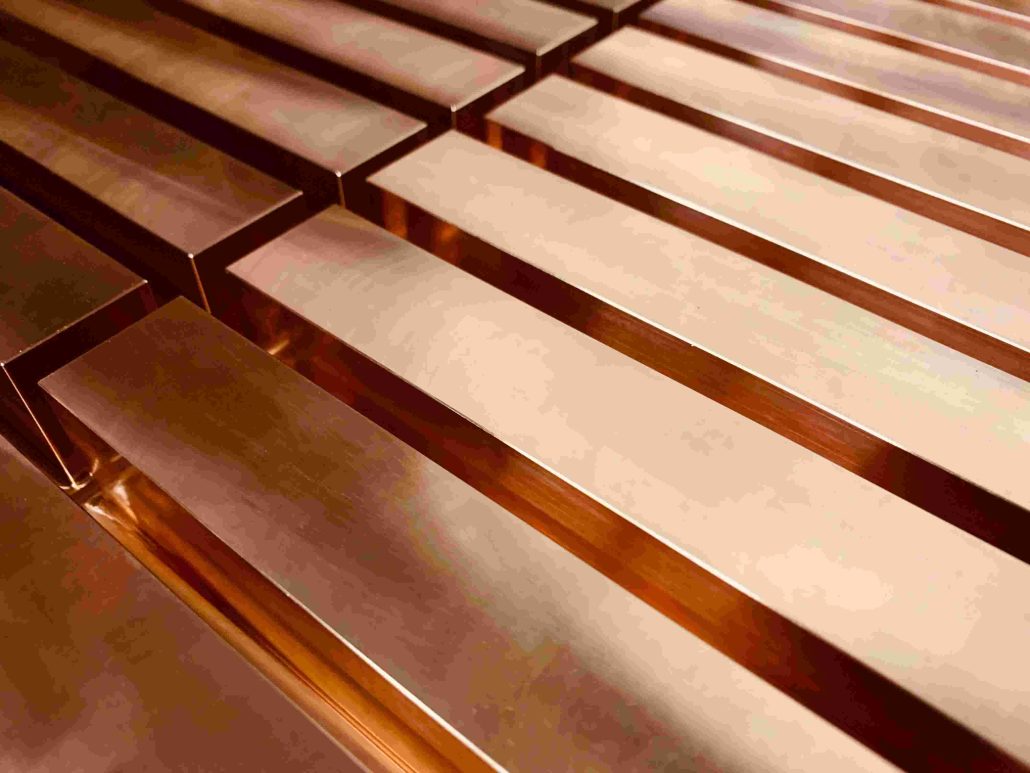
Properties of Beryllium Copper
Composition and Alloying Elements
Beryllium copper is a copper alloy that incorporates a small percentage of beryllium as the primary alloying element.
The composition of beryllium copper typically ranges from 0.5% to 2.7% beryllium, depending on the desired properties.
In addition to beryllium, other alloying elements like nickel, cobalt, or sometimes iron are added to further enhance the material’s properties.
These additional elements contribute to improving strength, hardness, and other mechanical characteristics.
The precise composition and proportion of the alloying elements are carefully controlled to achieve the desired balance of properties, making beryllium copper a highly versatile and customizable material for a wide range of applications.
Mechanical Properties
-
Strength and Hardness
Beryllium copper exhibits exceptional strength and hardness, making it a highly desirable material for applications that require robust mechanical performance.
Its strength surpasses that of traditional copper alloys, enabling it to withstand heavy loads and resist deformation.
Additionally, its hardness contributes to dimensional stability and wear resistance, ensuring longevity and reliability in demanding environments.
The impressive strength and hardness of beryllium copper make it a preferred choice for springs, connectors, electrical contacts, and other components subjected to high stress and load-bearing requirements.
-
Ductility and Formability
While beryllium copper is renowned for its strength and hardness, it also possesses notable ductility and formability.
Despite its high strength, it retains good ductility, allowing it to be easily shaped and formed into complex designs.
This attribute makes beryllium copper versatile for various manufacturing processes such as stamping, bending, and machining.
Its excellent formability enables the creation of intricate components with precise dimensions, making it a favored choice in industries that require both strength and intricate shapes.
-
Wear and Corrosion Resistance
Beryllium copper exhibits exceptional wear and corrosion resistance, making it suitable for applications in demanding environments.
Its wear resistance enables it to withstand repetitive motion and frictional forces without significant deterioration.
Moreover, beryllium copper demonstrates excellent corrosion resistance, making it resilient against the effects of moisture, chemicals, and harsh conditions.
This property ensures longevity and reliability, making it an ideal choice for components exposed to corrosive environments, such as marine equipment, oil and gas applications, and electrical connectors in challenging environments.
Thermal and Electrical Conductivity
Beryllium copper possesses excellent thermal and electrical conductivity, making it a highly valuable material in various industries.
Its high thermal conductivity allows for efficient heat transfer, making it ideal for heat sinks, heat exchangers, and other cooling applications.
Beryllium copper’s exceptional electrical conductivity rivals that of pure copper, enabling the smooth and efficient flow of electricity.
This property makes it highly desirable in the electrical and electronics industry, where it is utilized in connectors, terminals, switches, and other components that require reliable electrical conductivity.
The combination of outstanding thermal and electrical conductivity in beryllium copper contributes to enhanced performance and reliability in a wide range of applications.
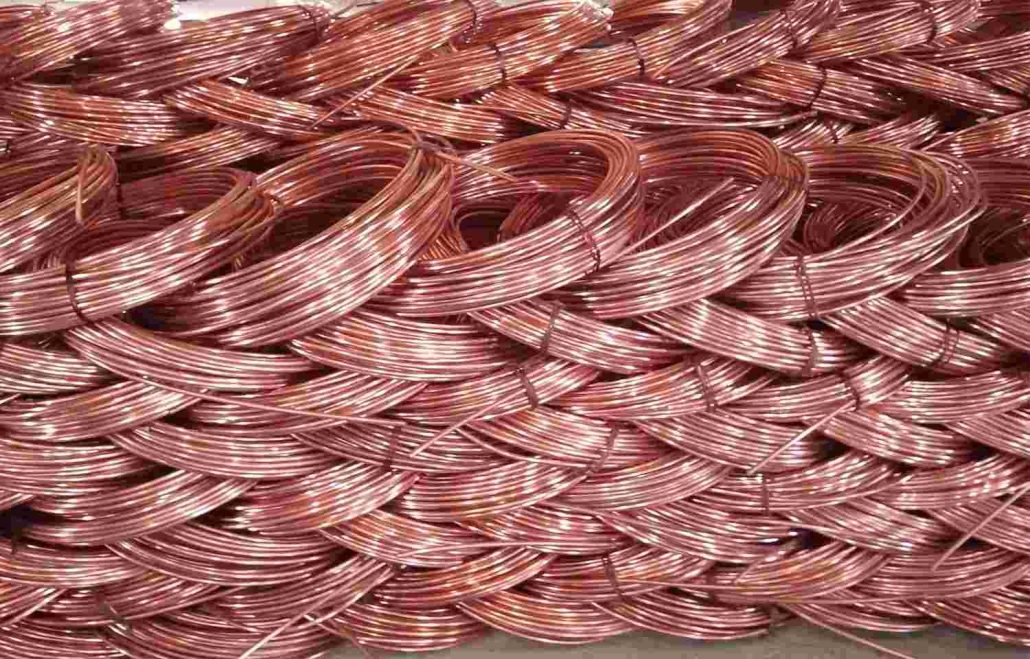
Manufacturing and Processing of Beryllium Copper
The manufacturing process of beryllium copper involves extracting beryllium, alloying it with copper, and employing various techniques such as forming machining, and heat treatment to shape and enhance the material’s properties. Let’s discuss one by one:
Extraction of Beryllium
The extraction of beryllium, the primary alloying element in beryllium copper, is a multi-step process.
Beryllium is most commonly extracted from minerals such as beryl and bertrandite. These minerals undergo crushing, grinding, and chemical processing to obtain beryllium oxide.
The oxide is then reduced with a reducing agent, typically carbon, in a high-temperature furnace to produce beryllium metal.
The extracted beryllium metal or beryllium-copper master alloys are subsequently used in the alloying process with copper to create beryllium-copper alloys.
Alloying and Melting Process
The alloying and melting process of beryllium copper involves combining beryllium metal or beryllium-copper master alloys with copper to create the desired composition.
The alloying elements are carefully measured and added to molten copper in a controlled environment.
The mixture is then subjected to a melting process, typically through methods like vacuum induction melting or electric arc furnace, to ensure uniform distribution of the alloying elements.
The precise alloying and melting process is crucial to achieve the desired properties and characteristics of beryllium copper.
Forming and Machining Techniques
Beryllium copper possesses excellent formability and machinability, allowing it to be easily shaped and machined into desired components.
Forming techniques such as stamping, bending, and deep drawing can be employed to shape the material into complex forms with precise dimensions.
Additionally, beryllium copper can be efficiently machined using conventional machining processes like milling, turning, and drilling.
Its good machinability ensures accurate and smooth machining operations, making it suitable for producing intricate parts with tight tolerances.
Heat Treatment and Aging
Heat treatment and aging processes play a vital role in optimizing the properties of beryllium copper.
After forming or machining, the material can undergo heat treatment to enhance its mechanical characteristics.
This involves heating the beryllium copper to a specific temperature and then rapidly quenching or slowly cooling it to achieve the desired properties, such as increased strength or improved ductility.
Aging, a subsequent step, involves holding the material at an elevated temperature for a specific duration to further enhance its mechanical properties and stability.

Applications of Beryllium Copper
Beryllium copper finds widespread applications across various industries.
It is utilized in aerospace and defense for connectors and springs, in electrical and electronics for switches and terminals, in automotive for bearings and gears, in oil and gas for non-sparking tools, and in other industrial applications where strength, conductivity, and corrosion resistance are crucial.
Aerospace and Defense Industry
In the aerospace and defense industry, beryllium copper plays a crucial role due to its exceptional properties. It is utilized in connectors, springs, and electrical contacts for its high strength, conductivity, and corrosion resistance.
Beryllium copper components are vital in aircraft electrical systems, avionics, communication devices, and missile guidance systems.
Its reliability, durability, and ability to withstand demanding conditions make it a preferred choice for critical applications in the aerospace and defense sector.
Electrical and Electronics Industry
Beryllium copper finds extensive applications in the electrical and electronics industry due to its outstanding conductivity and reliability.
It is used in connectors, terminals, switches, and other components that require efficient and stable electrical conductivity.
Beryllium copper’s low contact resistance, high durability, and resistance to wear and corrosion make it ideal for high-performance electrical contacts.
Additionally, its excellent thermal conductivity makes it valuable for heat sinks and other thermal management applications in electronic devices.
Automotive Industry
Beryllium copper has various applications in the automotive industry, primarily due to its strength, durability, and wear resistance.
It is used in bearings, gears, and bushings where high strength and excellent wear properties are required.
Beryllium copper components contribute to increased performance, efficiency, and longevity in automotive systems.
Additionally, its excellent conductivity makes it suitable for electrical connectors and terminals, ensuring reliable electrical connections in vehicles.
Oil and Gas Industry
In the oil and gas industry, beryllium copper finds valuable applications due to its non-sparking and corrosion-resistant properties.
It is used in non-sparking tools and equipment, ensuring safety in potentially explosive environments.
Beryllium copper’s resistance to corrosion makes it suitable for components exposed to harsh conditions and corrosive substances, such as valves, fittings, and connectors.
Its high strength and durability make it an ideal choice for oil and gas exploration and production equipment.
Other Industrial Applications
Beryllium copper has diverse applications in various industries beyond aerospace, defense, electrical and electronics, automotive, and oil and gas.
It finds use in industries such as telecommunications, medical equipment, consumer electronics, and marine applications.
Beryllium copper’s combination of high strength, conductivity, corrosion resistance, and non-magnetic properties makes it suitable for a range of applications, including springs, connectors, sensors, RF connectors, and underwater connectors.
It’s versatility and exceptional properties make it a valuable material across many industrial sectors.
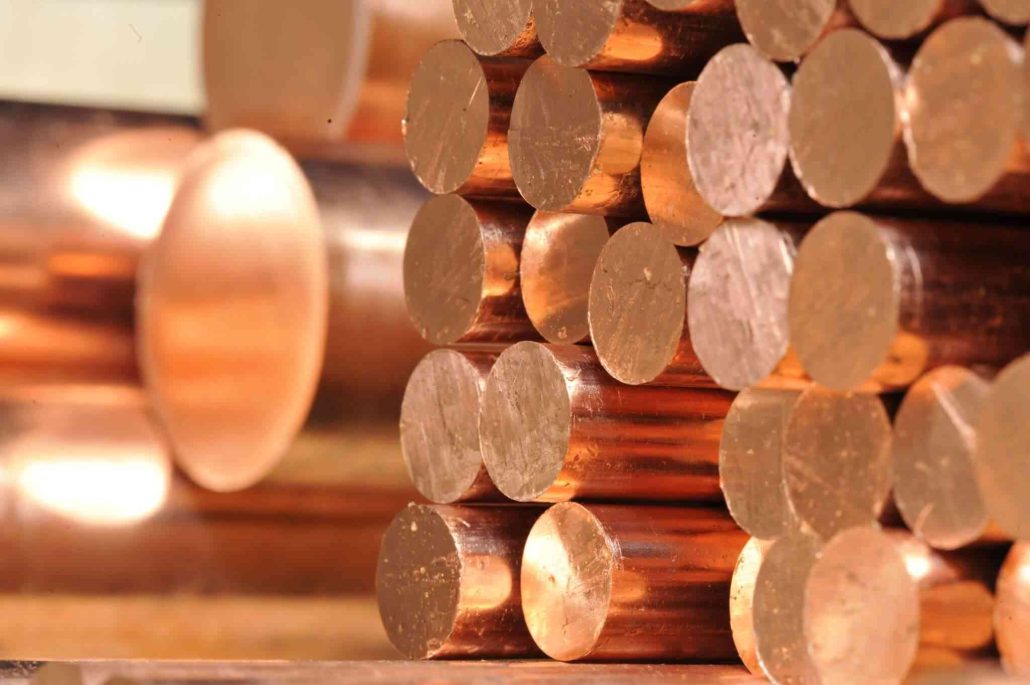
Safety Considerations and Hazards
While beryllium copper offers excellent properties and versatility, it is important to be aware of the safety considerations and hazards associated with its use. Here are some key points to consider:
- Health Risks of Beryllium Exposure: Beryllium can be hazardous if inhaled as fine particles or dust. Prolonged exposure to beryllium or its compounds may cause lung diseases, such as chronic beryllium disease (CBD) or berylliosis. These conditions can lead to respiratory problems and other serious health issues. It is crucial to follow proper safety precautions to minimize the risk of beryllium exposure, including using personal protective equipment (PPE) and implementing effective ventilation systems.
- Occupational Safety Precautions: Workers handling beryllium copper should be trained on safe handling procedures and be aware of the potential hazards associated with the material. This includes using appropriate respiratory protection, such as respirators with high-efficiency particulate filters, and ensuring good hygiene practices, such as regular handwashing and avoiding eating, drinking, or smoking in work areas.
- Environmental Impact and Regulations: Beryllium and its compounds can pose environmental risks if not handled properly. Industries using beryllium copper should adhere to environmental regulations to prevent contamination of air, water, and soil. Proper waste management, recycling, and disposal practices should be followed to minimize the environmental impact.
It is important to consult and comply with local regulations and guidelines related to the safe handling, storage, and disposal of beryllium copper to ensure the well-being of workers, prevent environmental harm, and promote a safe working environment.
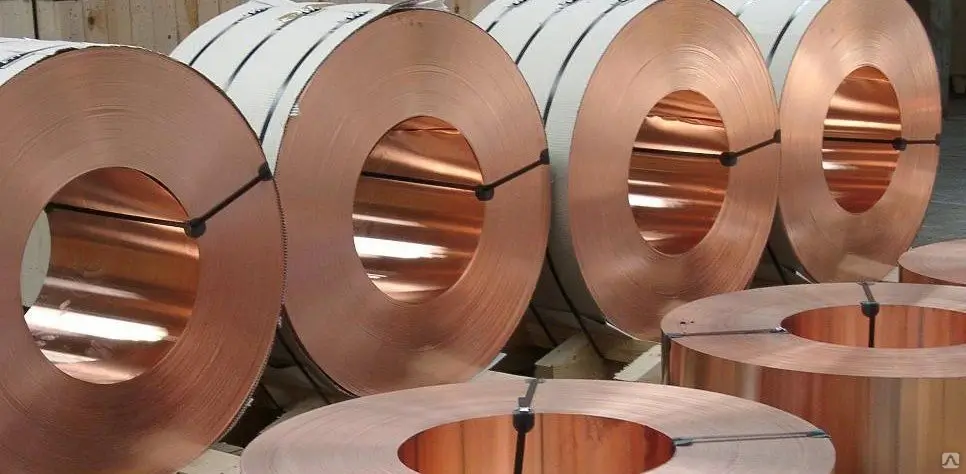
Conclusion
In conclusion, beryllium copper is a remarkable copper alloy that offers a unique combination of properties, making it highly valuable across a wide range of industries. Its strength, hardness, ductility, and formability make it suitable for intricate and demanding applications.
Additionally, its thermal and electrical conductivity contribute to its versatility in various sectors. However, it is important to be aware of the safety considerations associated with beryllium exposure and to follow proper handling and disposal practices.
By understanding its properties and adhering to safety guidelines, beryllium copper can continue to be utilized effectively, providing reliable and efficient solutions in aerospace, defense, electrical and electronics, automotive, oil and gas, and other industries.
The ongoing exploration of its potential and continuous improvement in manufacturing processes can further enhance its applications and promote advancements in various sectors.
 Over 15 Years of Expertise
Over 15 Years of Expertise FREE samples provided to ensure product satisfaction
FREE samples provided to ensure product satisfaction Rapid Turnaround: Mass Production Complete in 15 - 20 Days
Rapid Turnaround: Mass Production Complete in 15 - 20 Days





